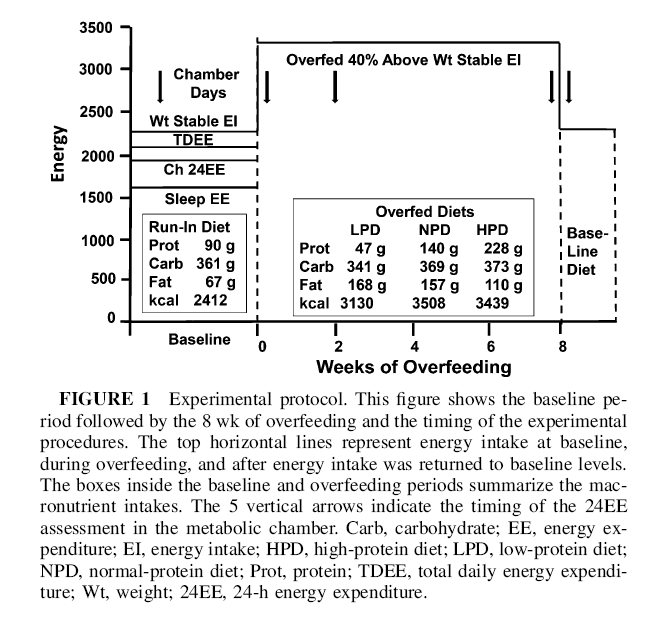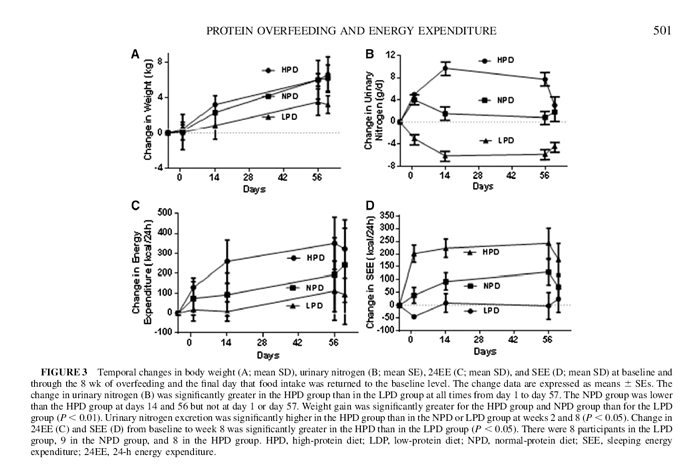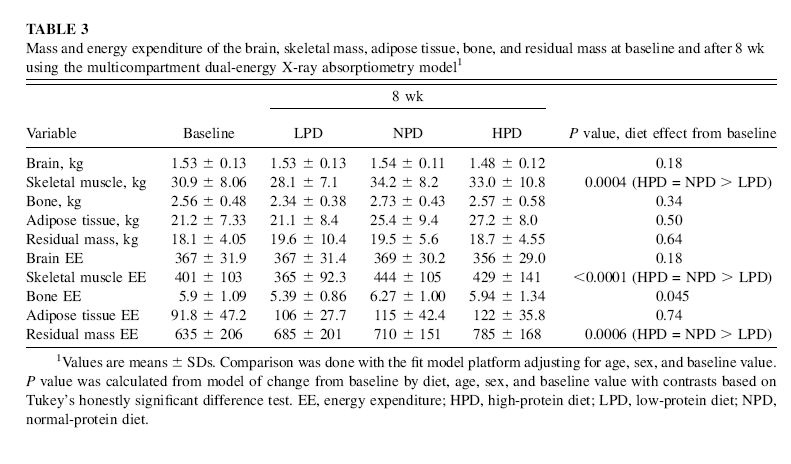TO be honest Bunny I’m a fairly sedentary person who walks the dog twice daily and that’s it.
I lead a very organised and repetitive life.
And yes I have explored CICO and found it very wanting as have many others so please don’t accuse me of “not having explored it deeply enough” I’ve lived it day and night up until about 5 years ago when I realised it was complete bunkum.
Check out my comment I made at KetoCon2019
Which apply to closed systems which the human body sure as hell ain’t…however much you wish it was.
So some people don’t fast and not lose a pound?
The onus is on you to prove the hypothesis… I and many other here have shown multiple black swans… Wittrock and Feltham have too… the hypothesis is false and that’s that.
And let’s not even start down the path of maintaining weight loss…
Wrong, Mark - it applies to our entire world. Nobody is saying “closed system” for the human body - the process of life itself means that’s not going to be the case (i.e. at the least, energy is coming out) - but the fact remains that there is no “magic” going on. Matter is conserved - there’s no magic gain or loss that’s going to happen, and the same for energy.
Unfounded objections to our poor old bomb calorimeter notwithstanding, measure the energy one expends and compare it to the energy intake. If you find ~500 more calories per day on the outflow side, then you’ll note ~1 pound weight loss per week.
Sigh
Try maintaining significant weight loss with extended caloric reduction…
That does not make sense. Of course some people don’t fast and not lose a pound. Hard for me to believe that’s what you meant.
If you mean people fast and don’t lose weight - then as always there is no ‘magic’ going on. Retaining enough water to counteract weight loss from fat usage sometimes happens. Heck, sometimes the day-to-day scale fluctuations not only demonstrate that, they totally swamp and overwhelm things, there. Dry fasting - not that I’m recommending it - shows that things do add up pretty well, i.e. account for ~.5 lb fat loss per day and water loss through the skin and via exhalation, and the weight of body wastes, and things work out as they should. And even with water-fasting, the average weight loss of ~.5 lb per day has been noted often, Fung et al.
You’re not bringing the hypothesis into question, there, you’re just denying the premise, and that’s illogical, as with the normal objections to CICO. That people’s metabolisms are different, and that the individual may have increases and decreases is not the issue - that is a given, but in no way does that mean that magical weight loss or gain is happening.
You’re talking about not maintaining the negative energy balance. We all (should) know that merely reducing caloric intake won’t necessarily equate to weight loss; that is a given - especially on this forum. And once again - this is not keeping the “calories out” side where it needs to be, if we are to test CICO. Denying the premise and then declaring that a hypothesis is false is illogical.
You’re right it should of course have said “some people fast and don’t lose a pound”.
Which in the case of CICO should be 100% impossible as you should know.
Zero calories in has to lead to weight loss even if you lie in bed and do nothing unless you’re dead.
Type 1 diabetics can shed kilos whilst eating loads… why is that?
Lack of insulin … that’s why it is one of the diagnostic tools used… excessive unintentional weight loss.
You’re forgetting about water weight. As above, it can easily counteract or even totally swamp the weight loss from fat usage in a given day.
I’m saying “the math is going to work out.” You appear to be saying that “magic happens.” Fasting without drinking anything shows very clearly that the body loses ~0.5 lb of fat (plus an average of 1.7 lbs of water through the skin and via exhalation) per day. Bigger people, especially those with lots of fat, can lose a little more; smaller people and leaner people will lose less.
Well sure - that is lots of “calories out” - coming out in the urine, even. It’s a hormonal effect, and nobody is saying those don’t matter. With Type 1 diabetics the need to get rid of sugar is often enough that the body will become dehydrated in its efforts to rid itself of sugar. There too - an obvious effect on weight. In the end, the math is still going to work out.
In the U.S. the National Institutes of Health has 3 metabolic chambers - where everything can be kept track of, even the gases the test subject is exhaling. These are whole-room calorimeters, and the math really does work out.
I, of course, don’t have a bomb calorimeter but do have a pen and paper  :
:
1 gm fat = 9 cal.
454 gm fat (1 lb) = 4086 cal.
Not far off of 3500 calories in a lb of fat…
And that is exactly where this CICO fallacy came from …
that the mathematics isn’t quite correct even then is an indicator that it could be flawed but no they keep on insisting…
Ohmigod how did I miss this? 


Everybody should know that a gram of fat will almost never have exactly 9 calories. There is a range, because there are different types of fat. Come on, are people insisting that it’s really going to be 9.00000?  Even our stored fat is a mixture of different triglycerides, and weight loss or gain changes this mixture; in no way is it a single, fixed, absolute quantity per unit of weight. Pure fat often tends to have more than 3500 calories in a pound. Our adipose tissue is not pure fat - while adipocytes are pretty cool because they are pretty extreme (comparatively large blobs of mostly fat with a thin layer of cytoplasm around them) - and 3500 calories per lb is a decent estimate or rule of thumb.
Even our stored fat is a mixture of different triglycerides, and weight loss or gain changes this mixture; in no way is it a single, fixed, absolute quantity per unit of weight. Pure fat often tends to have more than 3500 calories in a pound. Our adipose tissue is not pure fat - while adipocytes are pretty cool because they are pretty extreme (comparatively large blobs of mostly fat with a thin layer of cytoplasm around them) - and 3500 calories per lb is a decent estimate or rule of thumb.
The math works out. What is fallacious is to insist on ‘magic.’
OK, so your argument appears to be that we really don’t know the amount of calories in a gram of fat or a pound of fat…but “the math works out”. That’s like saying 1.x + 1 = 2, even though we have no idea what the 1.x is.
Here’s what I want you to do. Get the best scale possible. Weigh and measure everything. Don’t exercise, as that throws too many variables in there. Take measurements for a while, say two weeks. Determine your calorie intake. For the next period of time, say 2-4 weeks, drop EXACTLY 500 calories a day. That should be one pound of fat per week.
Report back your results.
After all, “the math works out”.
We know some ranges and some very good approximations, Bob. That alone is not why the math works out however - why it works out is because there is no magic phenomenona happening. Each and every atom of carbon, hydrogen, oxygen, etc. - each and every molecule of matter that we are talking about either exists or not, and if it exists and we take it in, then there will be a disposition of it. Maybe it goes into storage, or is excreted, or is metabolized. But it does not magically disappear.
No, because in that case it’s obvious that it’s 1.0.
How about a more applicable deal? How about stating X = Y where X is the intake and Y is the total of storage, excretion and usage (metabolization)? We do not have to know the exact quantities to realize the truth of the statement.
Do you think that is really precise enough?
In principle, DUDE I would love to!  What is needed is a whole room calorimeter.
What is needed is a whole room calorimeter.
In the whole world there are not many calorimeters large enough for a person to live in. I would very gladly do it for a week. This is keeping track of everything - the gases we breathe and exhale, etc. And yes, the math works out.
X would never exactly equal Y your argument is fallacious at its very core. Which is exactly why CICO in reference to the human body is also fallacious. We are not bomb calorimeters… we do not consume units of energy.
Trying to conflate “calories” with food is a fools errand.
Here’s a study done in a metabolic ward. They fed them a diet of “normal” protein (NPD), “high” protein (HPD), and “low” protein diet (LPD). The diets were isocaloric (meaning they ate more than the “should”).
Here’s what they did:
You can see the baseline diet had 2,412 calories, the NPD was about 3,500/day, the HPD was about the same (3,400/day). After 8 weeks, one would think the NPD and HPD should be about the same weight (1000 cals/day x 56 days = 56,000 calories/3500 = +16 pounds). The LPD is +600 cals/day x 56 days = 33,600 calories = +9.6 pounds.
What actually happened?
Nothing close to that, and there were large differences in EE (energy expenditure) between the groups.
And the NPD = HPD in terms of muscle mass, but NPD actually lost muscle mass:
https://academic.oup.com/ajcn/article/101/3/496/4569403
My opinion is that this whole “it’s all math” is just fine…until you actually look at studies. In fact, this study seems to be an anomaly, because usually higher protein = higher muscle mass, though in this case higher protein = higher EE (though, oddly this did not show up in weight).
The body is amazing, and doesn’t follow “rules” that we can articulate well enough at this point.
Stokies and CICO die/blow hards
A Calorie is Not A Calorie - A Discussion of Thermodynamics
A Calorie is Not A Calorie - A Discussion of Thermodynamics
A Calorie is Not A Calorie - A Discussion of Thermodynamics
A Calorie is Not A Calorie - A Discussion of Thermodynamics
I mean, the higher protein people had about 400 calories/day of higher EE, yet this doesn’t appear in weight or muscle mass. Hmm… Did this just disappear?
Equation me out of this one. As I don’t get it.



